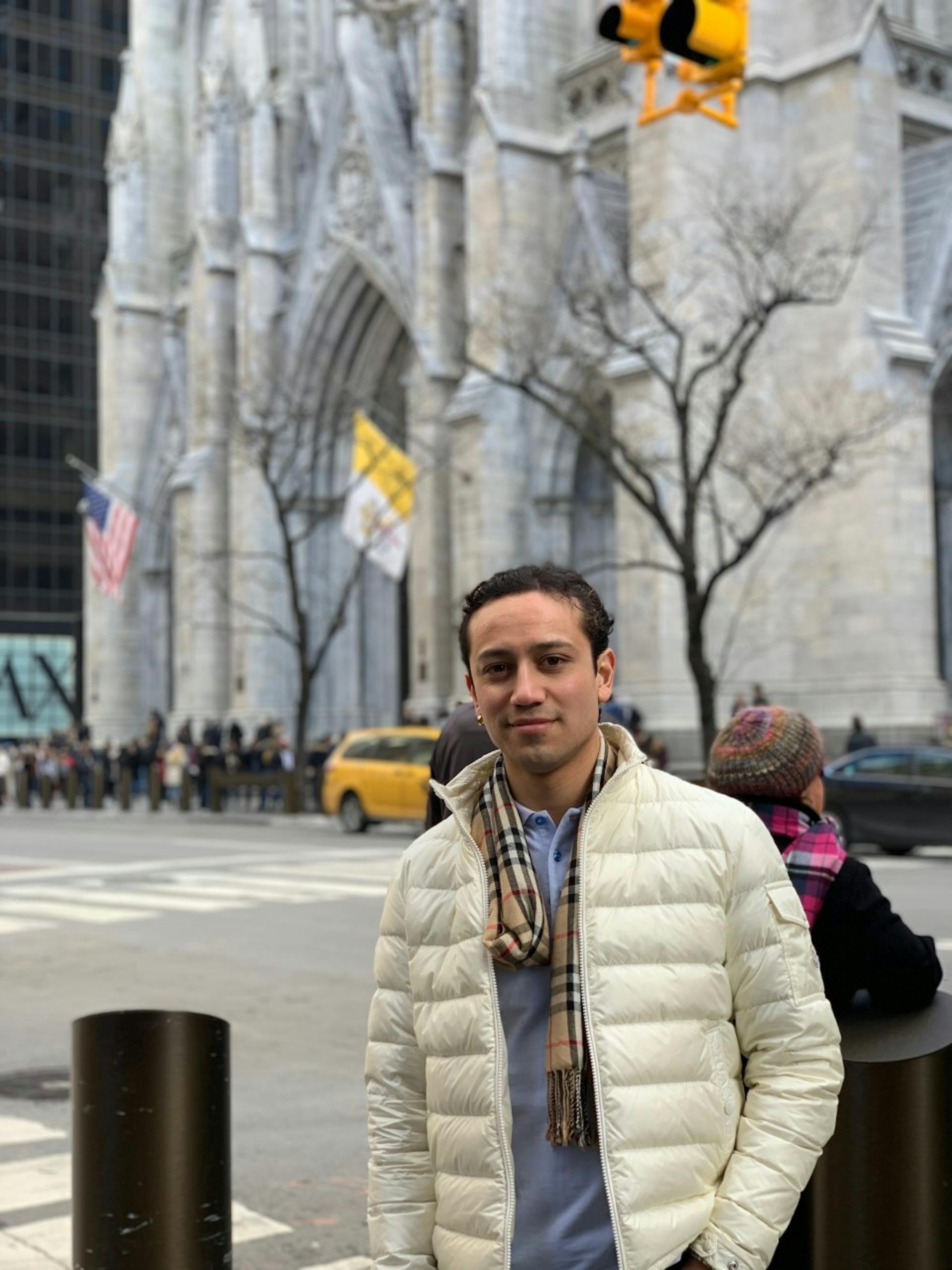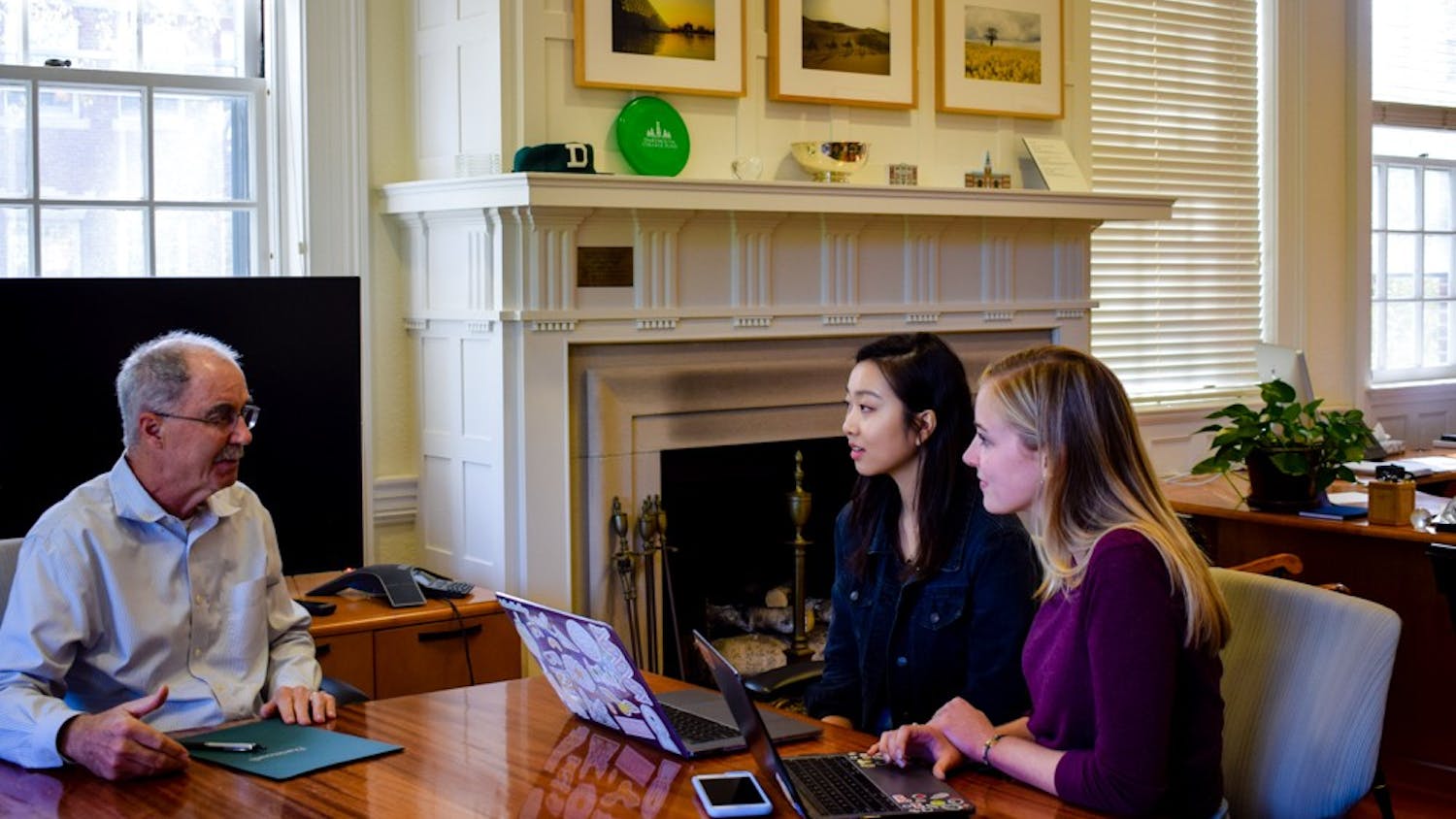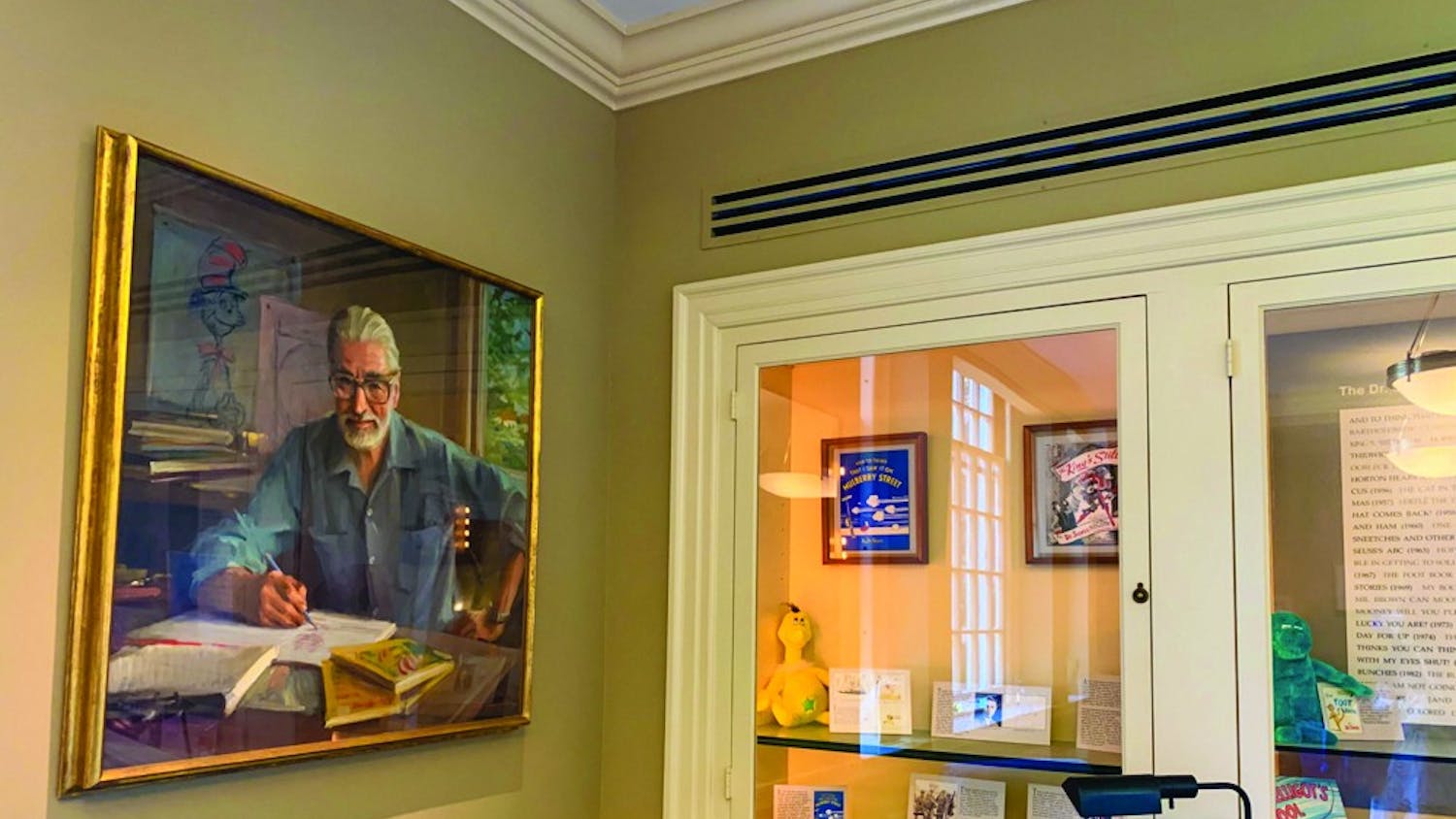The insanity of writing a reflection piece about being a tour guide is not lost on me. I truthfully cannot believe that, of all things eligible for reflection and thought, being a tour guide is what I chose. Maybe it is because being a tour guide trainer the past two years has dominated so much of my time that a part of my brain has been conditioned to think about guide-related things at all times. Or maybe it’s because, as a senior, it’s time for me to admit that being a tour guide has become an integral part of my Dartmouth identity.
The tour guide position is professional and paid, but those two things alone could never justify the amount of time and energy I have committed to the program. Dartmouth is many things, but it is nothing if not fast-paced. The D-Plan taught me very early on that time is the limiting resource in every aspect of life. In an atmosphere where I feel guilty for doing a normal human thing like grabbing a meal with a friend instead of getting Collis pasta to-go to have a working dinner in Thayer, there is simply no way I would have invested as much time, energy and effort into any group, position or program if I did not truly enjoy what I do within it and feel rewarded by it.
Yet when I am around particular subsets of the Dartmouth student body, I feel ashamed about my involvement with the program, and with the admissions office in general. To a certain degree this is because being as passionate about something as inconsequential as being a tour guide seems rather shortsighted and trivial. More than that, though, it is that the position’s purpose is to represent Dartmouth to visitors from all over the world. I singlehandedly have encouraged thousands of people to apply and, if admitted, to attend, this institution, knowing full-well what it has done to me.
I have rarely felt as nervous, or as guilty, as when reaching out to queer people of color to apply to be tour guides. I know how drastically different the Dartmouth experience is for those folks than for the “stereotypical” Dartmouth student. The types of visitors who have the social and financial capital to visit an elite school in rural New Hampshire with a single-digit acceptance rate are usually not the ones that I, as a gay brown NARP, can experientially relate to, and I don’t ever feel conflicted about encouraging them to apply. They will likely love Dartmouth. It’s with those who are more like me where my conflict lies.
This school has done things to my physical and mental health that high-school me would never in a million years have thought possible. The rigidity of financial aid policy here has caused me to take out nearly $100,000 in loans (if that is not “demonstrated need,” I really don’t know what is). I chose a major in response to imposter syndrome instead of a passion, and my GPA and academic curiosity have suffered the consequences. The closest I get to regularly speaking my native language is when I am teaching it as a drill instructor. I had to miss both my older brother’s graduation from college and the birth of my niece because of the pace of the quarter system and this administration’s bulls—t commitment to academic rigor.
Quite truthfully, if I could go back in time, knowing what I know today, I do not know what I would say to myself. I now know that on the surface, Dartmouth was not the right school for me. But because of that, being here forced me to grow and learn in ways that I could have at few, if any, other institutions. Now, at the end of my Dartmouth experience, I think this forced growth did make Dartmouth the right choice for me. Ultimately, I still think Dartmouth has made me the very best version of myself. This school taught me to embrace change and to be proud of the growing pains caused by failure. I learned to prioritize and to do so unapologetically when necessary. I have become a better thinker and a more nuanced criticizer, but a far-less skilled writer, as I now think exclusively in equations.
Dartmouth has also taught me to rely on others. This school has some really sh—y people, but it also has the most incredible people I have ever met anywhere in the world, and I don’t think I appreciate enough that I am honest when I say my best friends are my greatest inspirations.
Reconciling these contradicting realities lies at the heart of why I would struggle to explain to 18-year-old me why choosing to come here, if I could do it again, would fundamentally be the right decision. Writing this is the first time I am putting words to the truth that being a tour guide gave me the tools necessary to arrive at this conclusion.
Every time I have given a tour, I have actively been given the physical and mental space to reflect on this, both for myself on a personal level but also when trying to determine how best to honestly communicate these realities to visitors. At the end of the day, I am thankful for the FaceTime-y, on-the-surface superficial job because it was my mechanism for reflection, contextualization and internalization during my brightest and darkest moments at Dartmouth. By better understanding how to communicate to visitors the realities of life here, I have come to better understand them myself. As a senior, I feel I am now more prepared than ever to explain to those whose experiences align more with mine what they should expect, and why it is worth it to be here in spite of that. Tour- guiding provided me with the infrastructure to optimize the intangible lessons and learnings of my Dartmouth experience.




